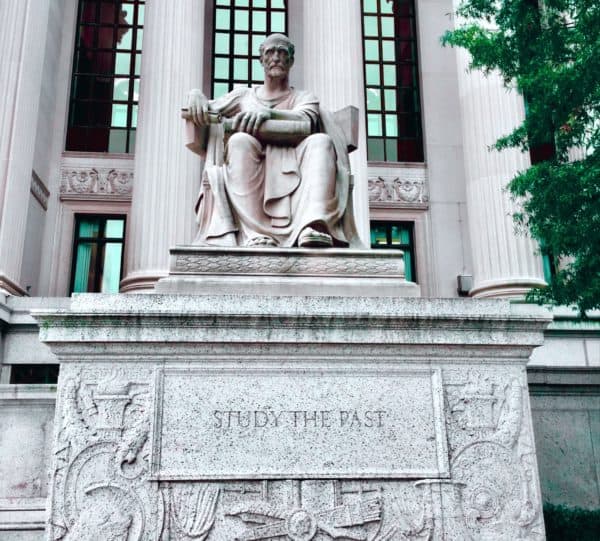Last Friday, the SEC settled charges against two companies, CarrierEQ Inc. dba Airfox (“Airfox”) and Paragon Coin Inc. (“Paragon”), which raised money with initial coin offerings (“ICOs”). The SEC found that both companies violated the registration provisions of the U.S. securities laws because neither company registered their offering nor qualified for an exemption to registration. As a consequence, the SEC fined each company $250,000 and required them to register their tokens as securities, offer a refund to their investors plus interest, and file periodic reports to the SEC for at least one year.
This is the first time the SEC penalized issuers of ICOs that had not committed fraud but had violated the registration requirements of U.S. securities laws.
The SEC first spoke out against a non-fraudulent ICO in its case against Munchee, Inc (“Munchee”). Like Airfox and Paragon, Munchee violated the registration provisions of the Securities Act. However, the SEC only imposed a cease-and-desist order against Munchee, which ordered them to stop violating the registration provisions of the Securities Act but the SEC did not fine them nor include any undertakings against Munchee.
According to the SEC, this was because Munchee, “stopped its offering before delivering any tokens and promptly returned proceeds to investors.”
However, issuers should not hope for the SEC’s leniency because it has now given several warnings, each more stern, that issuers that are looking to raise money with an ICO must comply with the registration provisions of the Securities Act.
In addition, the SEC has created a cyberunit to go after such violations and now has the institutional knowledge and framework to efficiently pursue violations.
The SEC’s Warnings to Issuers of ICOs
In the DAO Investigative Report (the “DAO Report”), the SEC for the very first time warned companies looking to raise money through ICOs that if the blockchain tokens they are selling are securities, they are subject to the U.S. securities laws. This means either registering with the SEC or qualifying for an exemption to registration.
The SEC repeated this warning in its press release about its cease-and-desist order against Munchee and again in its most recent press release against Airfox and Paragon.
Unlike in previous cases, the SEC imposed a fine on Airfox and Paragon and required them to refund investors and register their offerings.
It also warned that it will continue to be on the lookout for companies selling digital assets in violation of the securities laws and “that companies that issue securities through ICOs are required to comply with existing statutes and rules governing the registration of securities.”
The SEC’s Case Against Munchee
A few months after the DAO Report was published, December 11, 2017, the SEC published its press release informing the public that it had stopped Munchee’s ICO. This was the first time the SEC stopped an ICO where there were no indications of fraud. In the SEC’s cease-and-desist order against Munchee, the SEC analyzed whether the tokens that  Munchee offered were securities under the Howey line of cases for investment contracts and reiterated their statements in the DAO Report that blockchain or digital assets may be securities and if so are subject to the securities laws.
Munchee offered were securities under the Howey line of cases for investment contracts and reiterated their statements in the DAO Report that blockchain or digital assets may be securities and if so are subject to the securities laws.
Finding that Munchee had offered securities in its ICO and did not register its offering or use an exemption to registration, the SEC found that Munchee was in violation of the federal securities laws and ordered them to stop violating the law. The SEC did not impose a penalty on Munchee because Munchee stopped the ICO right after being contacted by the SEC and promptly refunded investors.
The SEC’s Cases Against Paragon and Airfox: Similarities and Differences with Munchee
Munchee, Airfox, and Paragon each decided to raise money with an ICO. At the time of their ICOs, the SEC had published the DAO Report, warning companies that the offer and sale of blockchain tokens through ICOs and token sales may be securities and if so, are subject to the federal securities laws.
Timeline and Marketing
Despite the SEC’s warning in the DAO Report, Munchee, Airfox, and Paragon began to raise money with their ICOs. They marketed their ICOs to U.S. investors and to entice them each company emphasized its efforts to make its tokens more valuable, including by creating an ecosystem for tokens and “burning” the tokens to make them more rare. Knowing that investors desired liquidity, the companies also told investors that they would put the tokens on an exchange.
Notably, the companies all began their ICOs around the same time, with Paragon and Airfox beginning their ICOs in mid-September 2017 and Munchee beginning its ICO on the last day of October 2017.
Unlike Munchee, both Airfox and Paragon had completed their ICOs and raised money, $15 million and $12 million, respectively. Munchee was only a day into its ICO when the SEC contacted them and Munchee immediately stopped its ICO and refunded investors.
Background: How the Howey Test Came to Be
Like in the DAO Report, the SEC used the Howey line of cases to analyze whether the blockchain tokens sold the Munchee, Airfox, and Paragon ICOs are “investment contracts.” This term is included in the definition of a security under U.S. securities laws and defined in a Supreme Court case against two companies, the W.J. Howey Company and the Howey-in-the-Hills Service Company (collectively, the “Howey Companies”).
Both companies belonged to an enterprising entrepreneur named William J. Howey. The W.J. Howey Company owned orange groves and the Howey-in-the-Hills Service Company serviced them. Howey decided he would keep half of the land and raise money by selling the other half.
He marketed the orange groves primarily to guests that stayed on his Florida resort, most of whom did not live in Florida nor had any skills to tend to the land. However, Howey offered to service the land through the Howey Service Company and even discouraged purchasers from tending to the land themselves, stating that their efforts would be futile. Instead, he encouraged purchasers to also enter into a service contract with the Service Company, promising significant profits to the buyers through its efforts of cultivating the land, and marketing and selling the oranges.
Like the ICO issuers discussed in this article, there were no indications of fraud in the Howey case. Regardless, the SEC sued the Howey Companies for offering and selling securities without registration. The case went to the Supreme Court, which was tasked with deciding whether the Howey Companies violated the registration requirements of the federal securities laws.
In resolving the Howey case, the Supreme Court had to determine what is an “investment contract.” The Court defined an investment contract as “a contract, transaction or scheme whereby a person invests his money in a common enterprise and is led to expect profits solely from the efforts of the promoter or a third party, it being immaterial whether the shares in the enterprise are evidenced by formal certificates or by nominal interests in the physical assets employed in the enterprise.”
In other words, an investment contract contains 4 prongs: 1) an investment of money; 2) in a common enterprise; 3) an expectation of profits; 4) from the efforts of others, regardless of how the interest is represented–i.e., the interest can be represented as a share certificate or a blockchain token.
The SEC Applies the Howey Test to the Munchee, Airfox, and Paragon ICOs
The SEC applied the Howey test to analyze whether the tokens offered and sold through the Munchee, Airfox, and Paragon ICOs were investment contracts. Specifically, the SEC went through each prong of the Howey test as follows:
- Investment of Money – Investors purchased the tokens from each of the companies with other digital assets.
- Common Enterprise – The investors invested their money in the respective common enterprises, Munchee, Airfox, or Paragon.
- An expectation of Profits – The investors expected a profit in their investment in the common enterprises. The proceeds of each of the ICOs were intended to be used to build each company’s respective ecosystem, creating demand for their tokens and increasing their value. The companies also emphasized other efforts they would take to increase the value of the tokens, including entering into strategic business relationships, burning tokens, and ensuring the liquidity of the tokens by placing them on a token exchange.
- Efforts of Others – The investors had to, respectively, rely on the efforts of the Munchee, Airfox, and Paragon to increase the value of their tokens, including by creating the ecosystem, burning the tokens, and ensuring secondary trading.
Because the ICOs met all four prongs of the Howey test, the SEC concluded that the tokens offered and sold by Munchee, Airfox, and Paragon are securities. In the U.S., the offers and sales of securities must either be registered or qualify for an exemption to registration. None of the companies registered nor qualified for an exemption. Thus, the SEC concluded that they had violated the registration requirement of the securities laws.
The SEC Is Likely to Apply the Howey Test to ICOs
The SEC used the Howey test and the line of cases that came after Howey in every case so far to determine whether issuers of blockchain tokens are offering and selling securities in violation of the U.S. securities laws.
 When asked to change the definition of a security in the wake of ICOs, Jay Clayton, the Chairman of the SEC, indicated that the SEC will not do so:
When asked to change the definition of a security in the wake of ICOs, Jay Clayton, the Chairman of the SEC, indicated that the SEC will not do so:
“We are not going to do any violence to the traditional definition of a security that has worked for a long time.”
Thus, applying the Howey line of cases set forth in the DAO Report and the subsequent proceedings against Munchee, Airfox, and Paragon are probably the best starting place in determining whether a company’s ICO is subject to the U.S. securities laws.
The SEC’s Repeated and Clear Warnings to Issuers of ICOs
In the SEC’s cease-and-desist orders against Munchee, Paragon, and Airfox, the SEC repeated its warning in the DAO:
“As the Commission discussed in the DAO Report, tokens, coins or other digital assets issued on a blockchain may be securities under the federal securities laws, and, if they are securities, issuers and others who offer or sell them in the United States must register the offering and sale with the Commission or qualify for an exemption from registration.”
 In addition, Stephanie Avakian, Co-Director of the SEC’s Enforcement Division stated in its press release about the Airfox and Paragon cases:
In addition, Stephanie Avakian, Co-Director of the SEC’s Enforcement Division stated in its press release about the Airfox and Paragon cases:
“We have made it clear that companies that issue securities through ICOs are required to comply with existing statutes and rules governing the registration of securities[.]” “These cases tell those who are considering taking similar actions that we continue to be on the lookout for violations of the federal securities laws with respect to digital assets.”
If the SEC was not clear in the DAO Report or its cease-and-desist order against Munchee that the SEC will pursue even non-fraudulent issuers of ICOs, the SEC’s recent press release and cease-and-desist orders against Airfox and Paragon should make this point abundantly clear.
The SEC’s Suggested Path Forward
For companies that engaged in ICOs in violation of the registration requirements, the SEC offers a path forward. Specifically, Steven Pelkin, co-Director of the SEC Enforcement division stated that companies that conducted ICOs in violation of the registration requirements can use the Airfox and Paragon orders as a model to come into compliance with the law. Specifically, the SEC required both companies to register their securities and offer a refund to investors. This likely means that issuers wishing to come into compliance can do so by registering their securities and offering a refund to investors.
 Onki Kwan is a partner at Vanguardium Legal LLP, a San Francisco-based law firm that advises blockchain and technology startups. Her expertise includes entity formation, capital-raising, blockchain-related securities and regulation issues, commercial transactions, and employment, technology, product, marketing, consumer protection and privacy-related matters. In her previous role as a senior attorney and director at a public interest law firm, she launched and managed an SEC and FINRA compliant JOBS Act funding portal.
Onki Kwan is a partner at Vanguardium Legal LLP, a San Francisco-based law firm that advises blockchain and technology startups. Her expertise includes entity formation, capital-raising, blockchain-related securities and regulation issues, commercial transactions, and employment, technology, product, marketing, consumer protection and privacy-related matters. In her previous role as a senior attorney and director at a public interest law firm, she launched and managed an SEC and FINRA compliant JOBS Act funding portal.


